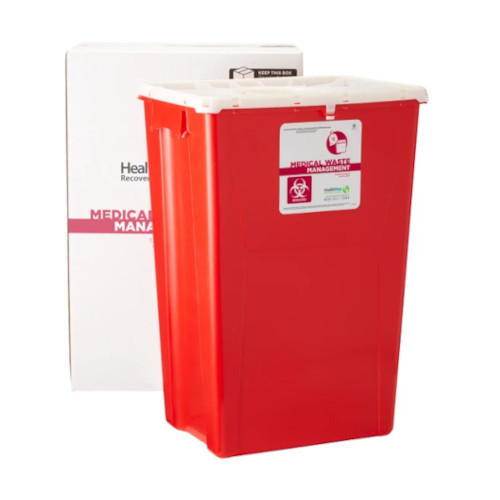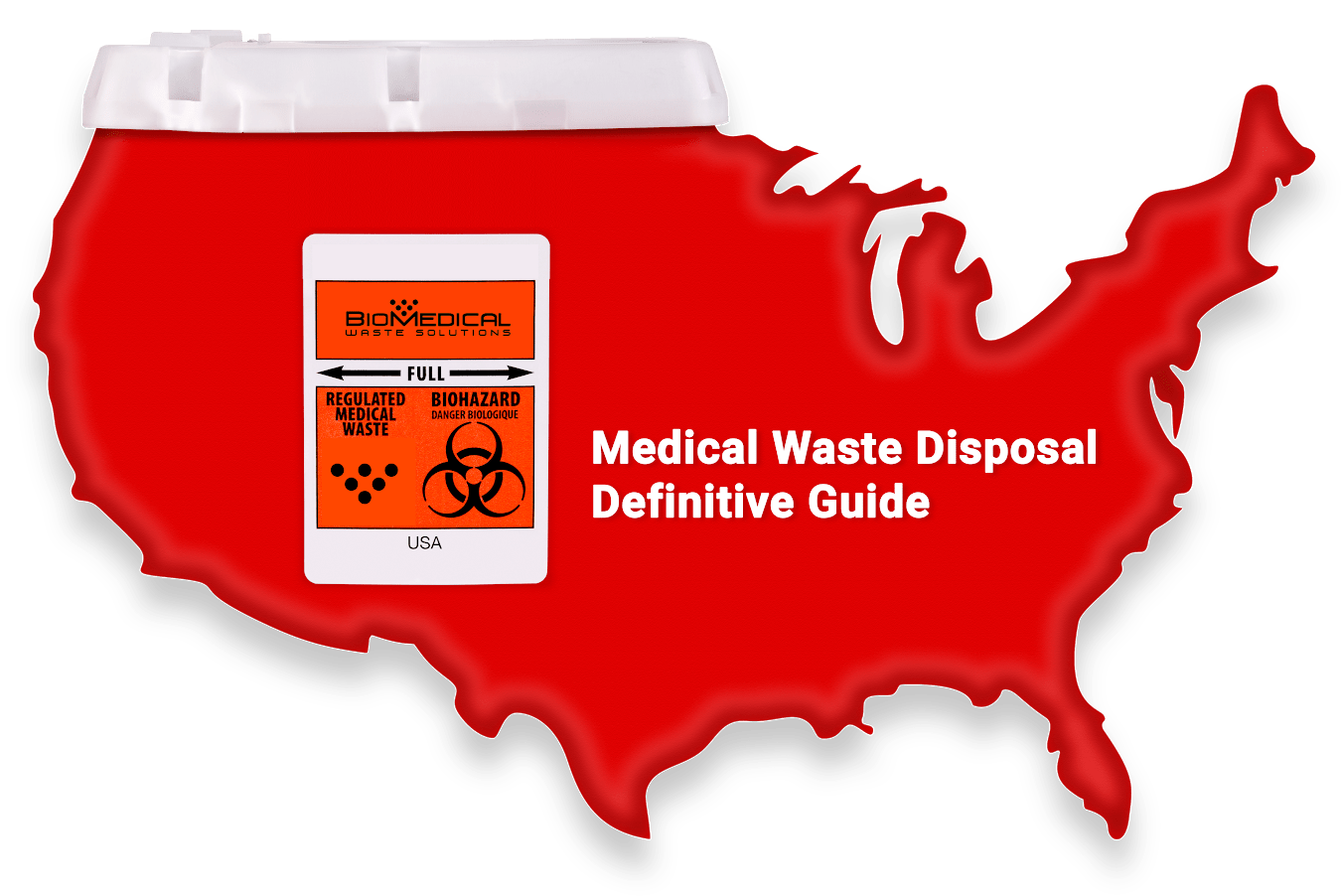Comprehensive Medical Waste Disposal Services for Health Care Facilities
Comprehensive Medical Waste Disposal Services for Health Care Facilities
Blog Article
Navigating Medical Waste Disposal: Important Services for Health Care Facilities
In the elaborate landscape of health care operations, the monitoring of medical waste is an essential aspect that demands careful focus. Medical care facilities, whether large healthcare facilities or tiny centers, are turned over with the obligation of handling, dealing with, and disposing of a vast array of medical waste streams. The intricacies involved in navigating via the regulative needs, guaranteeing proper waste segregation, and implementing secure collection and transport processes are critical. Recognizing the important services that support medical waste disposal is not just an issue of compliance however likewise a basic component in securing public health and ecological wellness. The details of this procedure are essential for health care facilities, and the competence provided in this world plays a pivotal role in preserving the integrity of medical care systems.
Regulatory Conformity Support
For health care facilities, making sure regulatory conformity assistance is vital to preserve correct handling and disposal of medical waste. Adhering to policies set forth by organizations such as the Epa (EPA) and the Occupational Safety And Security and Health Administration (OSHA) is crucial to avoid environmental contamination, secure public health and wellness, and stay clear of possible lawful effects. Regulatory compliance support provides healthcare facilities with advice on how to correctly segregate, shop, transportation, and throw away various kinds of clinical waste in accordance with local, state, and federal guidelines. This support consists of aid in creating and applying extensive waste management plans, carrying out normal team training sessions, and performing audits to guarantee recurring conformity. By partnering with regulative conformity specialists, medical care centers can remain current on progressing regulations, reduce dangers connected with inappropriate waste disposal, and inevitably contribute to a more secure and much more lasting atmosphere for all.
Waste Partition Advice

Healthcare facilities have to give clear standards and training to team on just how to segregate waste successfully. This consists of separating general waste from dangerous products such as sharps, transmittable waste, drugs, and chemical waste.
Collection and Transport Solutions

Proper collection and transport solutions are important parts of the clinical waste disposal procedure in health care centers. These services guarantee that hazardous products are dealt with securely and in conformity with laws to shield both the setting and public view it now health and wellness. Healthcare centers rely upon specialized waste administration firms to supply reliable collection and transport services tailored to their demands.
Clinical waste collection entails setting apart different types of waste at the factor of generation, using color-coded bags or bins to differentiate in between general, dangerous, pharmaceutical, and other waste streams. When accumulated, the waste is delivered in dedicated cars outfitted to handle hazardous products safely.
Treatment and Disposal Solutions
In the realm of medical waste disposal for healthcare centers, after the important stage of collection and transport solutions, the focus moves towards carrying out efficient therapy and disposal solutions. Treatment services typically involve processes such as autoclaving, which uses steam under pressure to sterilize the waste. This method is commonly made use of for transmittable waste that must be provided non-hazardous prior to disposal. An additional common therapy approach is incineration, where waste goes through high temperature levels in controlled settings to reduce its quantity and remove pathogens.
Disposal services incorporate the final action in the medical waste monitoring procedure. Recycling and resource healing are also acquiring traction as lasting disposal alternatives for certain kinds of medical waste materials.
Effective therapy and disposal remedies are critical in making certain compliance with policies and safeguarding public health and the environment. Health care facilities need to very carefully assess and select suitable techniques that line up with their waste administration goals and sustainability efforts.
Staff Training and Education

To effectively take care of clinical garbage disposal in health care facilities, extensive personnel training and education play an important role in guaranteeing adherence to regulative needs and keeping a safe atmosphere. Correct training equips team with the expertise and skills required to handle different types of clinical waste, segregate them correctly, and package them safely for disposal. By informing staff members on the dangers linked with inappropriate handling of clinical waste, centers can Related Site lower the chance of accidents, contamination, and regulative violations.

Final Thought
In final thought, medical care centers depend news on important medical garbage disposal services to make certain regulative conformity, proper waste partition, risk-free collection and transportation, reliable treatment and disposal, along with personnel training and education. These services play an essential role in maintaining the health and wellness of both healthcare employees and the public, highlighting the value of appropriate monitoring of medical waste in healthcare settings.
For healthcare centers, guaranteeing regulative conformity support is vital to keep proper handling and disposal of medical waste. Waste segregation includes classifying various types of medical waste to guarantee appropriate handling, therapy, and disposal. This consists of separating general waste from unsafe products such as sharps, contagious waste, pharmaceuticals, and chemical waste.Clinical waste collection entails setting apart different types of waste at the point of generation, utilizing color-coded containers or bags to identify between basic, unsafe, pharmaceutical, and other waste streams.In the realm of medical waste disposal for medical care facilities, after the critical stage of collection and transport services, the emphasis changes towards executing reliable treatment and disposal services.
Report this page